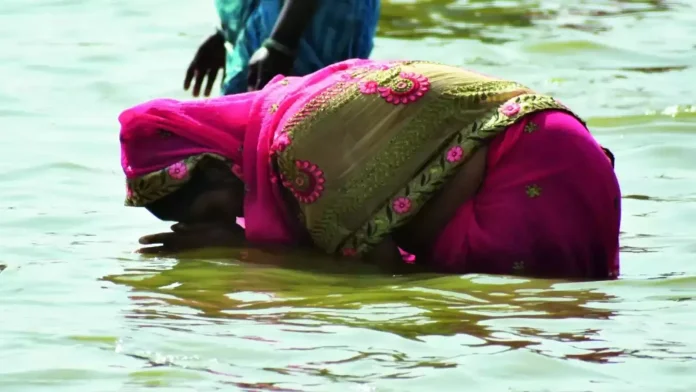The Central Pollution Control Board (CPCB) has released an alarming report highlighting the unsafe water quality of the sacred Sangam waters in Prayagraj. The report, based on recent tests, has detected dangerously high levels of fecal bacteria and Biochemical Oxygen Demand (BOD), making the water unfit for human use, including ritualistic bathing. This revelation has raised serious concerns, especially with the upcoming Maha Kumbh Mela scheduled for 2025.
Findings of the CPCB Report
The CPCB’s comprehensive water quality analysis presents shocking details about pollution levels in the Triveni Sangam, where the Ganga, Yamuna, and Saraswati rivers converge. The key findings of the report are:
- Elevated Fecal Coliform Levels: The presence of fecal bacteria in the water exceeds the permissible safety limits, indicating contamination from sewage discharge and industrial effluents.
- High BOD Levels: The Biochemical Oxygen Demand (BOD) levels are much higher than acceptable thresholds, showing significant depletion of oxygen in the water, which could be detrimental to aquatic life.
- Chemical Pollutants: The report also noted traces of heavy metals and other hazardous chemicals in the water, further worsening its quality.
- Poor Dissolved Oxygen (DO) Levels: Low dissolved oxygen levels make the water unsuitable for both marine organisms and human use.
Government’s Response and Measures Taken
Despite the concerning data, Uttar Pradesh Chief Minister Yogi Adityanath has assured devotees that the Sangam waters remain safe for ritualistic bathing. In response to the CPCB findings, the Uttar Pradesh Pollution Control Board (UPPCB) has been instructed to take immediate corrective measures. Some of the steps being undertaken include:
- Increased Water Treatment Efforts: Authorities are ramping up sewage treatment before water enters the Sangam region.
- Stricter Industrial Regulation: Stringent monitoring of industrial waste disposal in the Ganga and Yamuna is being reinforced.
- Public Awareness Campaigns: Devotees and locals are being educated about the importance of maintaining water cleanliness.
- NGT’s Intervention: The National Green Tribunal (NGT) has taken cognizance of the issue and is demanding accountability from the state government and local authorities.
Expert Reactions on the Issue
Environmentalists and water conservationists have voiced serious concerns about the pollution levels in the Ganga and Yamuna rivers. Dr. Ramesh Kumar, a leading environmental scientist, remarked:
“The high fecal coliform and BOD levels in the Sangam waters pose a major health risk. If not addressed immediately, the situation could lead to waterborne diseases and long-term ecological damage.”
Religious and Public Sentiments
For millions of devotees, a dip in the Sangam is considered a spiritually cleansing act. The revelations from the CPCB report have sparked a debate among religious groups and common citizens:
- Religious Leaders: Some religious heads have urged the government to restore the sanctity of the Sangam waters before the Maha Kumbh Mela 2025.
- Local Residents: Many residents of Prayagraj expressed concern over the health implications, with some calling for an immediate cleanup drive.
- Activists: Environmental activists are pushing for long-term solutions such as sustainable waste management and river rejuvenation projects.
Calls for Immediate Action
Given the critical nature of this issue, experts and citizens alike are demanding urgent measures to restore the purity of the Sangam waters. Some suggested actions include:
- Upgrading sewage treatment plants (STPs) to ensure zero untreated waste discharge.
- Enforcing stricter penalties on industries polluting the river.
- Encouraging community-led initiatives to clean and conserve the riverbanks.
- Boosting government funding for large-scale river cleaning projects.
The pollution in the Sangam waters is a pressing issue that needs immediate attention from authorities, environmentalists, and the general public. With the Maha Kumbh Mela 2025 drawing near, ensuring clean and safe water is crucial not just for religious purposes but also for public health and ecological balance. The CPCB report urges both state and central governments to swiftly implement effective solutions to restore the sanctity of the holy Sangam waters.
By – Nikita




